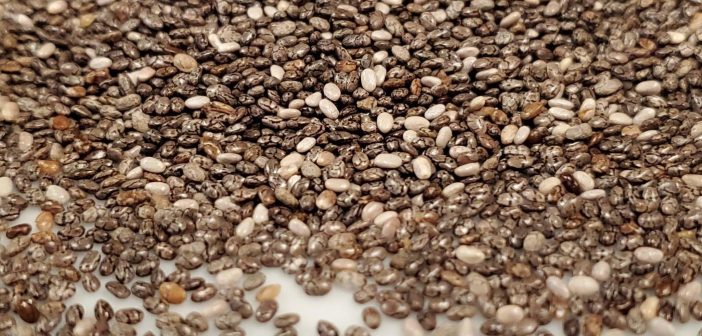Chia seeds, once a staple in the diets of ancient civilizations, have recently surged in popularity among health-conscious consumers worldwide, including in India. Touted as a “superfood,” these tiny seeds are claimed to offer numerous health benefits, from aiding weight loss to improving cardiovascular health. However, a closer examination reveals that the purported advantages of chia seeds may be overstated, leading to a burgeoning market in India that capitalizes on consumer misconceptions.
Nutritionally, chia seeds are rich in fiber, omega-3 fatty acids, protein, and essential minerals. Despite these attributes, scientific evidence supporting the specific health benefits of chia seeds remains inconclusive. For instance, while chia seeds contain alpha-linolenic acid (ALA), a type of omega-3 fatty acid, the body’s conversion of ALA to the more beneficial eicosapentaenoic acid (EPA) and docosahexaenoic acid (DHA) is inefficient. This raises questions about the actual cardiovascular benefits derived from chia seed consumption. Additionally, claims that chia seeds aid in weight loss are not robustly supported by clinical trials. Some studies suggest a potential for increased satiety, yet comprehensive research has not demonstrated significant effects on weight reduction.
In India, the health and wellness market has experienced substantial growth, with chia seeds becoming a prominent segment. The increasing demand is driven by aggressive marketing strategies that position chia seeds as essential for a healthy lifestyle. This trend has led to a significant rise in consumer spending on chia seeds, with the market size expanding rapidly in recent years.
Despite the escalating consumption, it’s important to recognize that chia seeds are not indigenous to India. They are primarily imported, contributing to their high cost compared to local alternatives. Traditional Indian diets already encompass a variety of nutrient-rich foods that offer similar, if not superior, health benefits at a fraction of the cost. For example, flaxseeds and basil seeds (sabja) are readily available, affordable, and provide comparable nutritional profiles.
The fascination with chia seeds exemplifies a broader pattern where exoticism and marketing overshadow traditional dietary wisdom. Consumers, swayed by unverified health claims and the allure of novelty, may overlook local, sustainable, and cost-effective options. This phenomenon not only strains individual finances but also perpetuates a cycle of dependency on imported goods, undermining local agriculture and food sovereignty.
In conclusion, while chia seeds are not devoid of nutritional value, the hype surrounding their health benefits lacks substantial scientific backing. The Indian market’s embrace of this trend reflects a susceptibility to global health fads, often at the expense of indigenous food practices. A more discerning approach, grounded in scientific evidence and cultural dietary traditions, would better serve consumers both nutritionally and economically.






